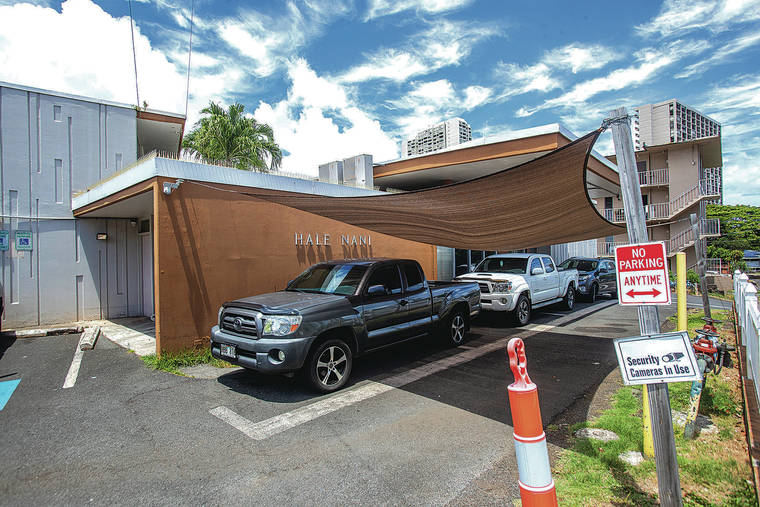Hawaii lawmakers debate coronavirus testing for nursing homes

DENNIS ODA / STAR-ADVERTISER
Hale Nani Rehabilitation and Nursing Center had five COVID-19 cases in June, which grew to 18. But as of Thursday there are no positive cases at the center.
State lawmakers held an informational briefing Thursday to discuss how COVID-19 outbreaks such as the ones that occurred at the state’s largest nursing home last month and at smaller care homes can be prevented.
Among the major concerns discussed before the House Health and Human Services and Homelessness committees was whether enough guidance is being provided to care facilities, particularly the smaller ones, which collectively represent about 13,000 patients, along with adequate personal protective equipment.
Health care experts said proven measures, such as wearing of face masks and vigilant screening of staff and visitors, must continue in order to control the spread of the virus. But a debate about the extent of testing for the long-term care community continues.
In mid-June a small outbreak Opens in a new taboccurred at Hale Nani Rehabilitation and Nursing Center in Honolulu that started with one staff member and four residents. According to Hale Nani’s website, since the outbreak June 12, six staff and 12 residents have tested positive for COVID-19.
Two of the patients, however, were coronavirus-positive upon admission, Hale Nani said, and acquired the disease from the community rather than the facility.
Dr. Scott Miscovich, president of Premier Medical Group Hawaii, said Thursday that a final round of tests came back negative for all Hale Nani residents. The residents have undergone a two-week cycle of testing, with no positives remaining.
Don't miss out on what's happening!
Stay in touch with breaking news, as it happens, conveniently in your email inbox. It's FREE!
“To have our largest nursing home in the state have a significant outbreak, with no loss of life, is something we should be proud of,” said Miscovich, whose team was on site at Hale Nani within about 12 hours of the first reports.
At the heart of the conversation Thursday was whether more proactive testing should be done to identify cases and prevent the spread of the coronavirus in such facilities.
State epidemiologist Dr. Sarah Park said that in order to conserve resources, she supports “strategic testing” in cases where a cluster or contacts have been identified, particularly in crowded living situations and for vulnerable populations.
“It’s about being strategic, being mindful that at any given day the supply chain may stop,” she said.
This is particularly important now, given an unprecedented global demand for COVID-19 testing supplies and following news Wednesday that Roche Diagnostics — the mainland supplier for Honolulu-based Diagnostic Laboratory Services — has temporarily reduced supplies for reagents and other testing supplies Opens in a new tab needed to run the tests locally.
Park noted that labs in the state use a diverse array of federally approved testing platforms and that not all are reliant on Roche.
Miscovich supported more proactive testing, including of those who are asymptomatic. Nationally, he said, up to 40% of people with COVID-19 exhibit few to no symptoms, and that’s what occurred at Hale Nani.
Both Park and Miscovich emphasized the need for nursing home staff to be especially vigilant, even when not at work, because the most common way for the virus to enter a care home is through its employees.
Hilton Raethel, president and CEO of the Healthcare Association of Hawaii, told the committees that staff and visitors at all facilities have their temperatures taken daily and are screened for contact with people who are ill or have symptoms of the virus.
In addition, the Legislature has allocated $100 million in federal coronavirus relief funds to provide PPE to schools, small businesses and health care facilities.
State Rep. John Mizuno, chairman of the House Health Committee, said one care home had expressed concerns to him about having adequate PPE, as well as where its patients could quarantine if infected with COVID-19.
Mizuno said he supports more extensive testing for nursing home residents and staff, and that the testing protocol done at Hale Nani could serve as a blueprint for the state.
“We need to get more tests, because at the end of the day, it’s about safety,” he said.
Honolulu Mayor Kirk Caldwell earlier this week said that in the past 28 days, there have been five care homes affected by COVID- 19, with 19 cases and two deaths. The state Health Department confirmed that was correct.



